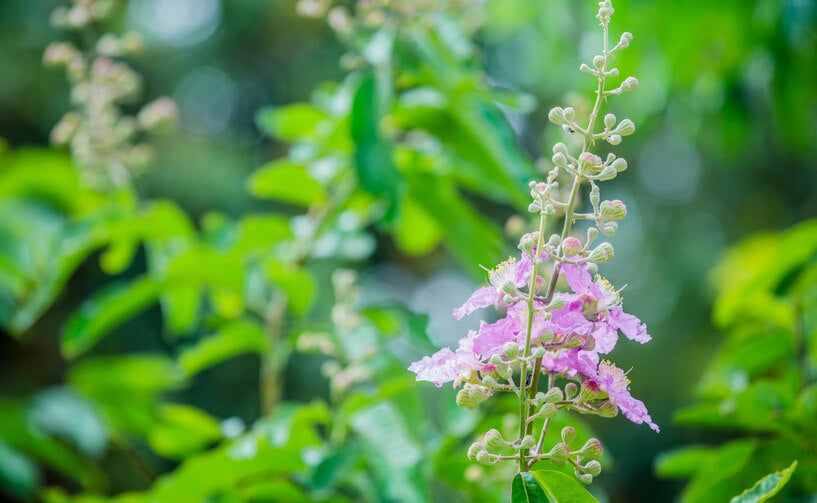Nirgundi aka Vitex Negundo is a plant from the Lamiaceae family. It has some common names like five-leaved chaste tree, horseshoe vitex, Chinese chaste tree etc. The name five-leaved chaste tree comes to it from its quality of diminishing sexual desire.
Indrani, Nilanirgundi, Nirgundika, Renuka, Sephalika, Shephali, Shvetasurasa and Sindhooka are some of its Sanskrit names.
It is the native plant of Africa and Asia. It is widely cultivated all over the world. Nirgundi plant is more likely to be found near water bodies. It grows best in the well-drained loamy soil. This plant is widely planted as hedges to demark the division of fields.
It is a shrub with an average height of 2 to 8 m. The roots of the plant are woody, thick and reddish brown in colour. The bark is thin and brownish-blackish in colour. The leaves are palmately compounded. The middle leaflet is petiolate.
As per Ayurveda, this herb has a bitter taste and is dry in nature. It has hot potency and balances Vata and Kapha doshas. Various parts of this plant especially essential oils of flowers and leaves are used in Ayurveda, Homeopathy, Unani and allopathy for therapeutic use. Nirgundi juice, oil and powders are widely used in preparing medicines.
It has around six species that are rich in phytochemical constituents. Nirgundi herb is rich in Phenol, angoside, acunbin, casticin, B-sitosterol, Alkaloid-vitricine, etc. All these substances contribute towards the better treatment of the human body.
Benefits of Nirgundi
-
Relieves inflammation: Nirgundi plant is enriched with anti-inflammatory properties that make it highly effective to be used for several health issues. It reduces inflammation and pain associated with it. This quality makes it appropriate for the treatment of arthritis, joint pain, muscle pain, etc. The anti-inflammatory effect is even useful for treating acute rheumatism.
-
Helpful in treating liver disorders: Liver issues can be treated with the use of nirgundi plant. The extracts of this plant improve digestion, increase appetite and prevent gas and bloating. These extracts are also useful for reducing stomach pain and inflammation.
-
Good for headaches: The analgesic property of nirgundi plant helps in treating headache and body pain. It is an effective herbal treatment for headaches.
-
Effective for respiratory problems: The use of nirgundi extracts decongests the pathways of the respiratory system. It improves the breathing process by opening the air passages properly. This quality is utilised by Ayurveda for treating respiratory issues like bronchitis, asthma, etc.
-
Provides relief to sore throat: Gargling with nirgundi decoction soothes throat pain. It helps in reducing the swelling of the throat. The anti-bacterial action of this plant helps in reducing the bad bacteria in the throat and mouth. Mouth ulcers can also be given relief by its analgesic and anti-inflammatory effect.
- Controls symptoms of PMS: PMS symptoms include mood swings, abdominal pain, hormonal imbalance, depression, etc. Such symptoms can be reduced with the extracts of this plant. It even helps at the time of menopause. Vaginal infections can also be treated with its use.






